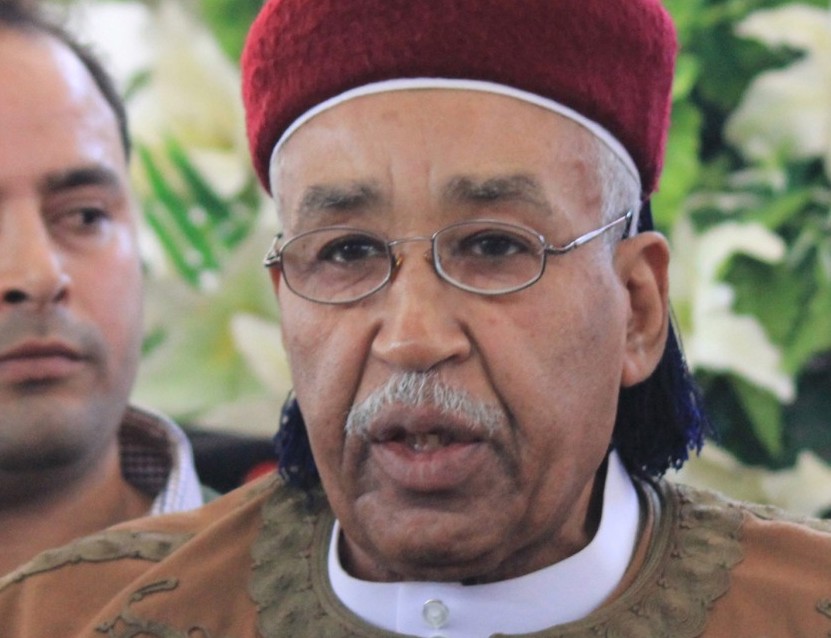By George Grant.
Tripoli, 10 July:

The leadership of Libya’s eastern federalists has said that it welcomes the victory of Mahmoud Jibril’s National . . .[restrict]Forces Alliance and looks forward to “constructive dialogue” after the elections.
Ahmed Zubair, who leads the Cyrenaica Transitional Council (CTC), said on Monday that of all the party leaders, “Mahmoud Jibril is the closest to us in his openness, his line of thinking and his vision”.
The remarks followed a statement by Jibril earlier in the day when he extended an invitation to dialogue with the federalists, describing them as “patriots” who “care about Libya”.
“We were very pleased when Jibril made these remarks”, said Majid Wanis, a leading federalist and son of the last prime minister before Qaddafi seized power in 1969.
“He said that our views should be listened to, that we were patriots and that we care about Libya. He said that even though federalists do not have seats on the National Conference [having boycotted the elections], he would be glad to open dialogue with us and to ensure our views are represented”.
The move by Jibril is the latest sign that he intends to use the overwhelming victory secured by his party to try and bring together Libya’s disparate political factions as opposed to pushing through unilateral agendas.
On Sunday evening, he extended an invitation to other parties to join a “grand coalition” within the Conference, although it remains to be seen how many will take him up on the offer.
Making peace with the federalists will be vital for Jibril if he is to succeed in bring much needed stability to Libya. In the run-up to the elections, tensions boiled over in the east with anti-election demonstrators burning ballot papers, closing oil refineries and even killing a young volunteer with the elections commission.
The CTC has condemned this violence, and insisted that its members were not responsible. “Those people who did this are thugs”, said Wanis. “They were just protesting about seat distribution on the Conference; they are not federalists. Our agenda is much bigger than that.
“I was shouting at them not to hurt anyone, that it shouldn’t happen this way. We actually withdrew our members to their homes at about 1:30pm-2pm as a result.”
Speaking earlier today, the NFA’s general secretary, Faisal Krekshi, confirmed that Jibril had opened a dialogue with the CTC leadership. “Dr Jibril is personally in contact with them and has received a very positive response. The most important thing is to create and atmosphere of trust, and I am convinced they believe in the sincerity of our programme”.
Yesterday evening, rumours began circulating on the social networking site Facebook, that the CTC would dissolve itself after the elections because “the people [had] spoken”.
Wanis denied this, but did not rule out the possibility of a dissolution of the CTC if negotiations with Jibril went well. “Federalism is about giving people a fair chance and making sure everybody’s views are heard. If the CTC can work with Jibril to deliver that fairness, then it will have done its job.
“There are currently 296 major national companies in Libya, the Central Bank, National Oil Company and so forth; just 25 of them are located in Cyrenaica and Fezzan (the south). We want to see a redistribution; and we want some taxes raised in the east to stay in the east”.
Wanis also said the CTC would ask for a referendum in the east on the federalism question. “We want a referendum, and if we get that, and people vote against us, then we would respect that and the CTC would be dissolved”.
In Tripoli, Krekshi said that all of these requests would be considered, insisting that the respective political programmes of the NFA and the federalists were not so far apart.
“What this ultimately comes down to is decentralisation, and we support that. Some taxes raised locally should be spent locally, for example. The central government must control those issues of concern to the whole nation, such as foreign policy and the central bank, but other things such as harbours, healthcare and education should be controlled by the districts. It is ludicrous that someone wanting permission to build a school in Kufra should first have to get permission from Tripoli”. [/restrict]







